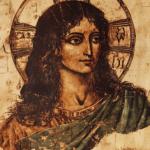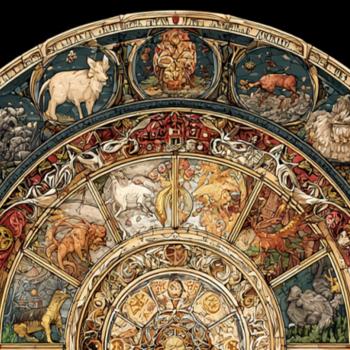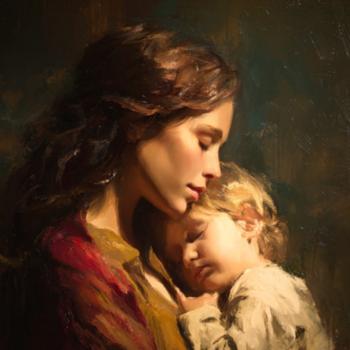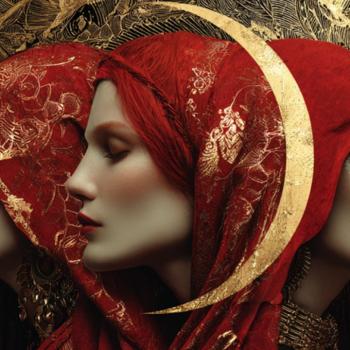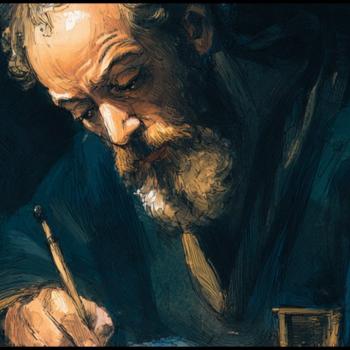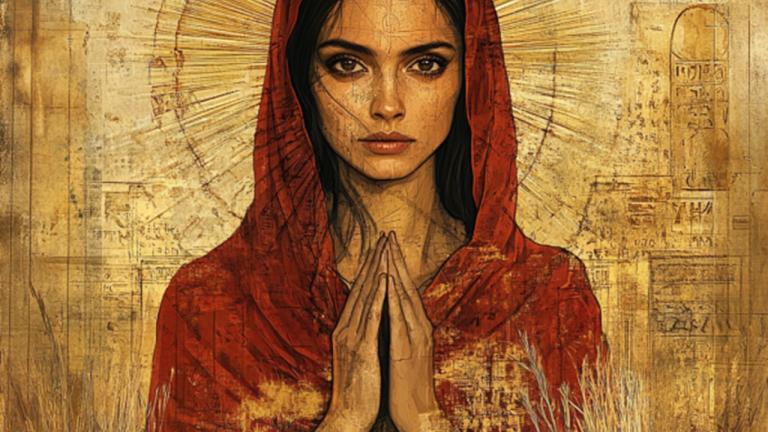
When we think about Mary Magdalene, certain images come to mind—a devoted follower, a misunderstood figure, even a mysterious symbol of wisdom.
In the first few centuries of Christianity, Mary Magdalene stirred up a lot of conversation. Early church fathers, theologians, and commentators had varying opinions about who she was and what she represented.
Libbie Schrader Polczer’s work on Mary’s portrayal in patristic literature shows just how deeply these early Christian voices shaped Mary Magdalene’s legacy, in ways both inspiring and, at times, troubling.
Mary Magdalene: Bride of Christ and New Eve?
In some early Christian texts, Mary Magdalene appears as a central figure, almost as if she were the Bride of Christ.
Writers like Hippolytus connected her with the Shulamite woman in the Song of Songs, searching for her beloved. Mary’s deep longing for Jesus and the way she sought him out were seen as symbols of spiritual purity. For these early writers, Mary Magdalene’s longing for Jesus wasn’t just human devotion—it was divine yearning.
In another fascinating take, Mary is portrayed as the “New Eve.”
This idea, taken up by heavyweights like Tertullian, Augustine, and Gregory of Nyssa, paints her as someone who, unlike the original Eve, actually redeems humanity through her faithfulness. She becomes the woman who, through her obedience and devotion, sets right what went wrong in Eden.
Imagine it: Mary Magdalene as the faithful counterpart to the disobedient Eve, reversing the curse and pointing us all toward redemption.
Not All Good Vibes: Mary as a Misguided Disciple?
Of course, not everyone saw Mary Magdalene in such a flattering light. In fact, some writers struggled to accept her passionate devotion, seeing it as evidence of her “womanly” nature or an overreaction.
Origen and Jerome, for instance, sometimes depicted her as easily confused, driven by emotion rather than wisdom. To them, Mary’s attempts to touch Jesus in the garden after his resurrection (in John 20) were not expressions of devotion but a misguided impulse.
Origen, in particular, suggested that Mary didn’t fully grasp Jesus’ divinity. He interpreted Jesus’ command, “Do not touch me,” as a way of setting boundaries for a follower who was, in his view, out of line.
Jerome took a similar stance, arguing that Mary’s emotions clouded her faith. In their eyes, Mary’s devotion, while well-meaning, needed correction—a reminder that even in the early church, gendered assumptions influenced how people were viewed.
Apostle to the Apostles
Thankfully, not every early Christian thinker saw Mary Magdalene this way. Quite a few recognized her as the first person to see and announce the resurrection, earning her the title “Apostle to the Apostles.”
Hippolytus and Augustine, for example, both acknowledged that Mary’s faith and devotion were so strong that Jesus chose her as the first to witness the resurrection. This acknowledgment was no small thing; it elevated Mary’s role to the heart of the Christian story, making her the first evangelist in history.
For Augustine, Mary’s encounter with Jesus was more than just a personal experience—it was a powerful message. She was the one who had the faith and courage to bring the good news to the male disciples, even when they doubted. It’s almost as if she represented all those who are dismissed or doubted, yet still choose to stand firm and speak truth.
Mary’s Legacy: The Good, the Bad, and the Complicated
Schrader Polczer’s exploration of Mary Magdalene’s story in early Christian literature shows just how complex her legacy is. For every portrayal that honors her as the Bride of Christ or the New Eve, there’s another that sees her devotion as misguided or embarrassing.
These conflicting images remind us that Mary Magdalene wasn’t simply “good” or “bad”—she was complicated, a real human who found herself at the center of some of Christianity’s most profound mysteries.
Today, her legacy invites us to look beyond the surface and to consider the richness of her story.
As the “Apostle to the Apostles,” Mary Magdalene continues to inspire those who seek a deeper, more inclusive understanding of faith, reminding us that the journey of faith is rarely straightforward. And maybe that’s her lasting gift: to show us that spirituality is not about perfection or fitting into anyone else’s mold. Instead, it’s about the courage to seek, to believe, and to keep sharing the truth—even when the world isn’t ready to hear it.
**
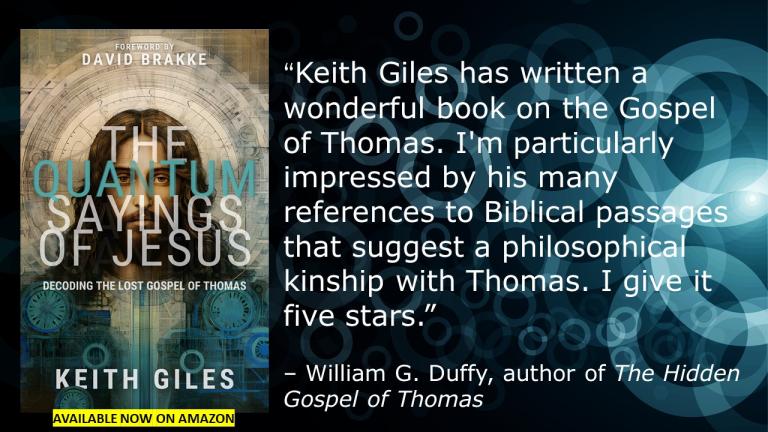
The newest book from Keith Giles, “The Quantum Sayings of Jesus: Decoding the Lost Gospel of Thomas” is available now on Amazon. Order HERE>
Keith Giles is the best-selling author of the Jesus Un series. He has appeared on CNN, USA Today, BuzzFeed, and John Fugelsang’s “Tell Me Everything.”
He co-hosts The Heretic Happy Hour Podcast and his solo podcast, Second Cup With Keith which are both available on Spotify, Amazon, Apple, Podbean or wherever you find your podcast fix.


